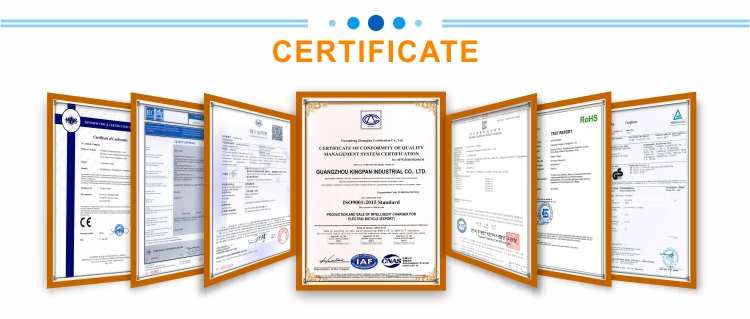
- Afrikaans
- Albanian
- Amharic
- Arabic
- Armenian
- Azerbaijani
- Basque
- Belarusian
- Bengali
- Bosnian
- Bulgarian
- Catalan
- Cebuano
- Corsican
- Croatian
- Czech
- Danish
- Dutch
- English
- Esperanto
- Estonian
- Finnish
- French
- Frisian
- Galician
- Georgian
- German
- Greek
- Gujarati
- Haitian Creole
- hausa
- hawaiian
- Hebrew
- Hindi
- Miao
- Hungarian
- Icelandic
- igbo
- Indonesian
- irish
- Italian
- Japanese
- Javanese
- Kannada
- kazakh
- Khmer
- Rwandese
- Korean
- Kurdish
- Kyrgyz
- Lao
- Latin
- Latvian
- Lithuanian
- Luxembourgish
- Macedonian
- Malgashi
- Malay
- Malayalam
- Maltese
- Maori
- Marathi
- Mongolian
- Myanmar
- Nepali
- Norwegian
- Norwegian
- Occitan
- Pashto
- Persian
- Polish
- Portuguese
- Punjabi
- Romanian
- Russian
- Samoan
- Scottish Gaelic
- Serbian
- Sesotho
- Shona
- Sindhi
- Sinhala
- Slovak
- Slovenian
- Somali
- Spanish
- Sundanese
- Swahili
- Swedish
- Tagalog
- Tajik
- Tamil
- Tatar
- Telugu
- Thai
- Turkish
- Turkmen
- Ukrainian
- Urdu
- Uighur
- Uzbek
- Vietnamese
- Welsh
- Bantu
- Yiddish
- Yoruba
- Zulu
Nov . 30, 2024 20:54 Back to list
Tips for Fine-Tuning Your Mountain Bike Derailleur for Optimal Performance
Adjusting a Mountain Bike Derailleur A Comprehensive Guide
Mountain biking can be a thrilling experience, but a well-tuned bike is essential for optimal performance on rugged trails. One critical component of your bike’s drivetrain is the derailleur, which shifts the chain between different gears. Properly adjusting your mountain bike derailleur can significantly enhance your riding experience, ensuring smooth shifting and preventing chain skips. In this article, we will go through the steps to adjust your mountain bike derailleur effectively.
Understanding the Derailleur
The derailleur consists of two main parts the front derailleur and the rear derailleur. The front derailleur shifts the chain between the chainrings on the crankset, while the rear derailleur moves the chain across the cassette at the rear wheel. Both derailleurs are crucial in allowing you to find the right gear for your riding conditions. Adjustments can be necessary due to wear, cable stretching, or after a bike tune-up.
Tools Needed
Before starting, ensure you have the necessary tools a Phillips screwdriver, a flathead screwdriver, a 5mm Allen wrench, and possibly a chain checker tool. A clean workspace will also help you keep track of any small parts during the adjustment process.
Step-by-Step Adjustment
1. Inspect Your Derailleur
Begin with a visual inspection of both derailleurs for any visible damage or misalignment. Check the cables for fraying and ensure they move freely. Also, clean any dirt or debris from the derailleur and chain.
2. Adjust the Limit Screws
The limit screws control how far the derailleur can move
. For the rear derailleur, locate the two limit screws, generally marked 'H' (high) and 'L' (low).adjusting mountain bike derailleur

- High Limit Adjustment Shift to the smallest cog on the cassette. The derailleur should sit just above this cog without making contact. If necessary, use a Phillips screwdriver to adjust the 'H' screw until it aligns correctly. - Low Limit Adjustment Next, shift to the largest cog. The derailleur should hug this cog without pushing the chain off. Adjust the 'L' screw to correct any misalignment.
3. Adjust the Cable Tension
Proper cable tension is essential for smooth shifting. If shifts are slow or if the chain hesitates, you may need to adjust the barrel adjuster, usually found on the shifter or near the derailleur. Turn the barrel adjuster clockwise to increase tension and counterclockwise to decrease it. Test shifting through the gears to find the sweet spot where shifts occur smoothly.
4. Align the Derailleur
Ensure that the derailleur is parallel to the cassette. An improperly aligned derailleur can cause poor shifting and increased wear. If it isn’t aligned, adjust the derailleur by loosening the mounting bolt and repositioning it before tightening again.
5. Test Your Adjustments
Once you’ve made your adjustments, take your bike for a test ride. Shift through all the gears to ensure there’s no skipping or grinding. Pay attention to how easily the chain moves between gears, and make any fine-tuning adjustments as necessary.
6. Regular Maintenance
Remember that regular maintenance is key to keeping your derailleur operating efficiently. Clean the derailleur, check cable tension, and inspect limit screws as part of your bike’s routine upkeep.
Conclusion
Adjusting your mountain bike derailleur doesn’t require expert mechanical knowledge but does necessitate careful attention to detail. With the right tools and some basic understanding, you can achieve optimal shifting performance that enhances your mountain biking experience. A well-adjusted derailleur not only improves your ride but also contributes to the longevity of your drivetrain. Happy riding!
-
The Ultimate Kids' Four-Wheeler Experience
NewsJul.09,2025
-
The Ultimate Guide to Mountain Bikes: Gear Up for Your Ride
NewsJul.09,2025
-
The New Age of Cycling: Electric Bikes for Every Rider
NewsJul.09,2025
-
The Best Kids Bicycles: Ride in Style and Safety
NewsJul.09,2025
-
The Best 3-Wheel Scooters for Kids: Fun, Safety, and Adventure
NewsJul.09,2025
-
Revolutionize Your Ride: Affordable Electric Bikes
NewsJul.09,2025
-
Finding the Perfect Mountain Bike for Every Rider
NewsJul.09,2025



